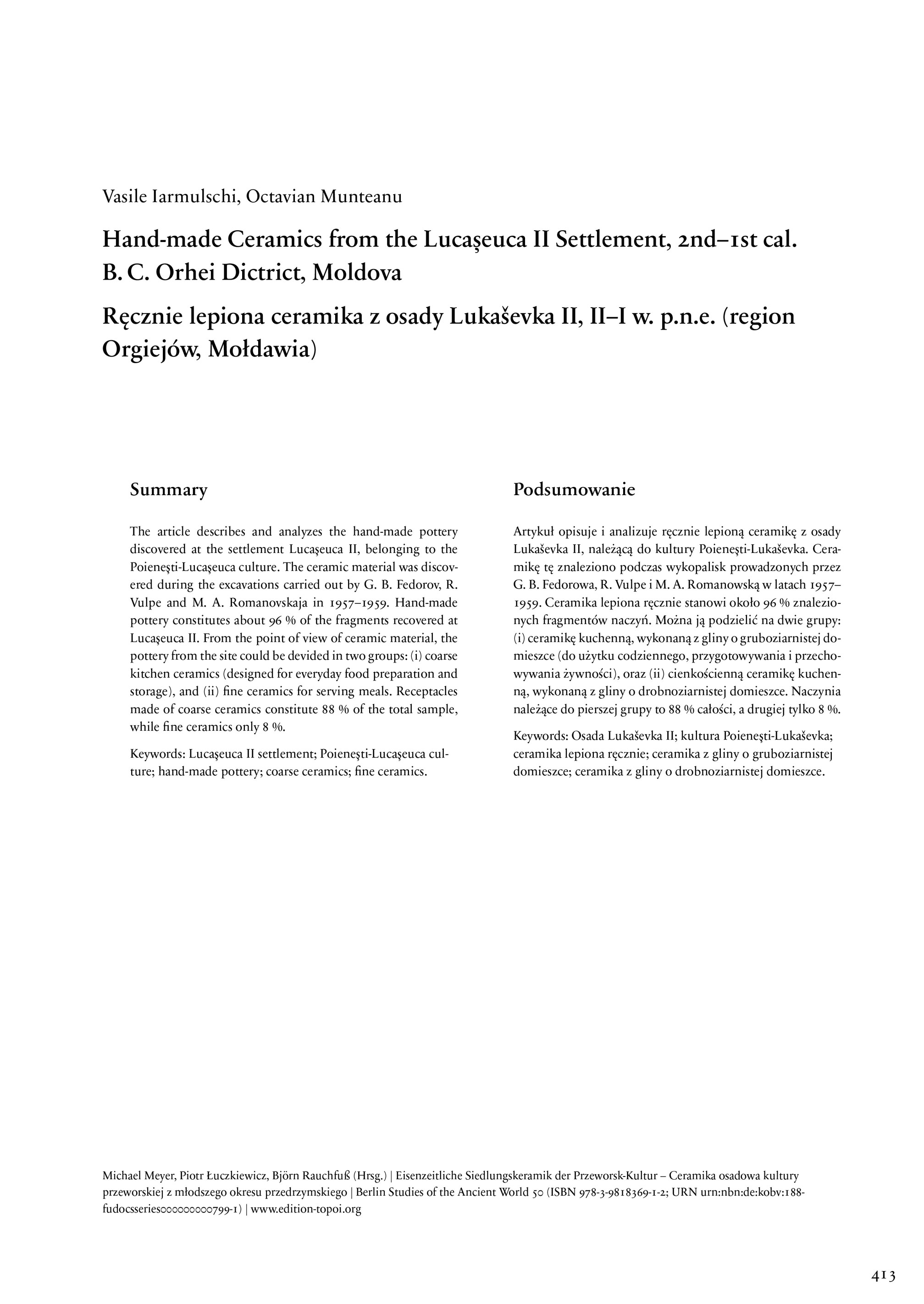Hand-made Ceramics from the Lucașeuca II Settlement, 2nd–1st cal. B.C. Orhei Dictrict, Moldova / Ręcznie lepiona ceramika z osady Lukaševka II, II–I w. p.n.e. (region Orgiejów, Mołdawia)
Vasile Iarmulschi and Octavian Munteanu
The article describes and analyzes the hand-made pottery discovered at the settlement Lucașeuca II, belonging to the Poienești-Lucașeuca culture. The ceramic material was discovered during the excavations carried out by G. B. Fedorov, R. Vulpe and M. A. Romanovskaja in 1957–1959. Hand-made pottery constitutes about 96 % of the fragments recovered at Lucașeuca II. From the point of view of ceramic material, the pottery from the site could be devided in two groups: (i) coarse kitchen ceramics (designed for everyday food preparation and storage), and (ii) fine ceramics for serving meals. Receptacles made of coarse ceramics constitute 88 % of the total sample, while fine ceramics only 8 %.

